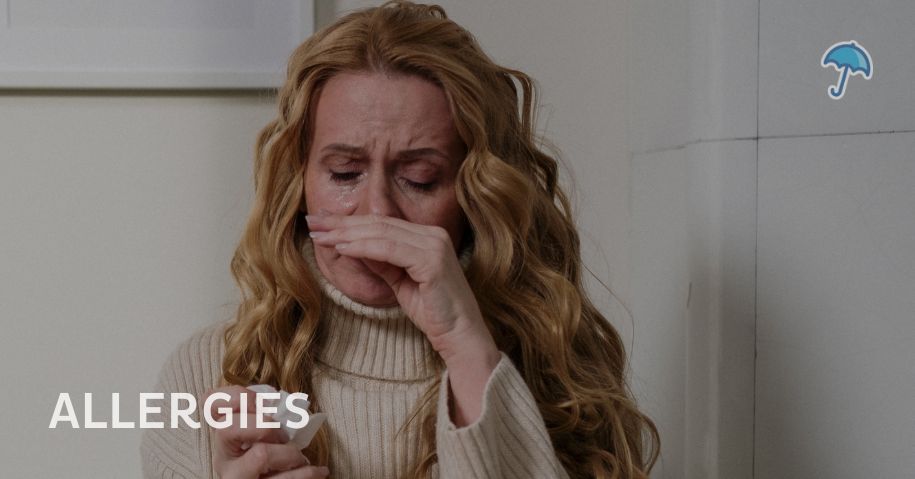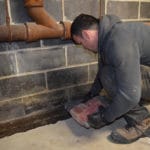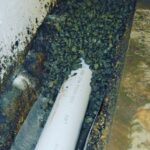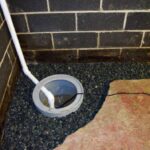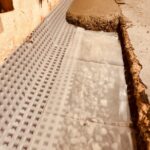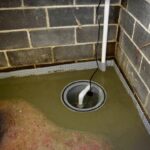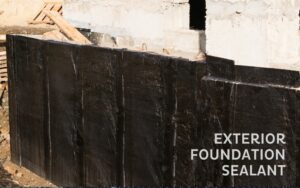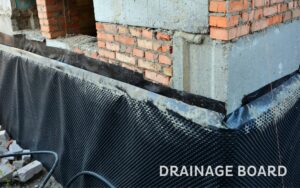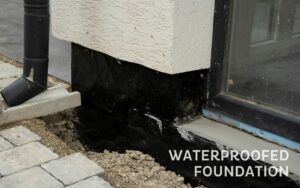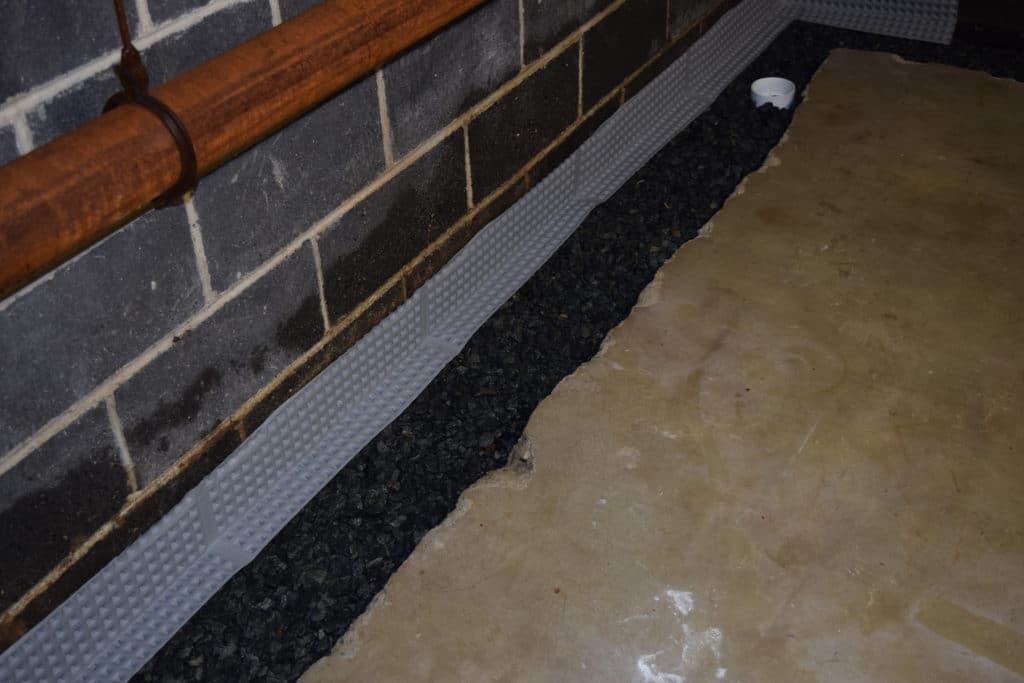What Causes Basement Mold & How to Prevent It
How Basement Waterproofing Can Keep Mold Out of Your NJ Basement
A basement without mold problems means you have a whole additional floor that you can use for storage, renovation, or even living space!
Unfortunately, basement mold affects homes across New Jersey - leading to property damage, health problems, and unusable basements.
But your home doesn't need to be one of the thousands of New Jersey properties with basement mold problems. Professional basement waterproofing can keep your basement safe and dry, which prevents mold.
With years of experience and hundreds of completed waterproofing projects, Blue Umbrella Waterproofing is New Jersey's top contractor for mold prevention. Call us to get started on your waterproofing and mold prevention project.
In the meantime, the best next step to basement mold prevention is understanding the problem. So let's break down what mold is, what causes it, the different kinds of mold, and most importantly - how basement waterproofing prevents mold growth.
Frustrated By Basement Mold?
Blue Umbrella is New Jersey's solution. We provide proven, permanent basement waterproofing to prevent basement mold growth.
What is Mold?
Mold is a type of fungus. It attaches itself to damp or decomposing materials, then spreads and grows over time through the dispersal of spores. When you think of mold, you might think of green spots developing on an old sandwich left in the fridge. But mold can grow on more than old cheese - like your basement's damp walls and floors.
What Does Basement Mold Look Like?
Basement mold in New Jersey can come in different shapes, sizes, and colors. It first appears as just yellow or pinkish discoloration and can develop into green, gray, black, or white color. Mold typically has a dusty or fuzzy texture (think of that moldy sandwich again) - but don't touch or interact with the mold - give Blue Umbrella a call instead. Along with a unique appearance, basement mold also has a distinctive smell.
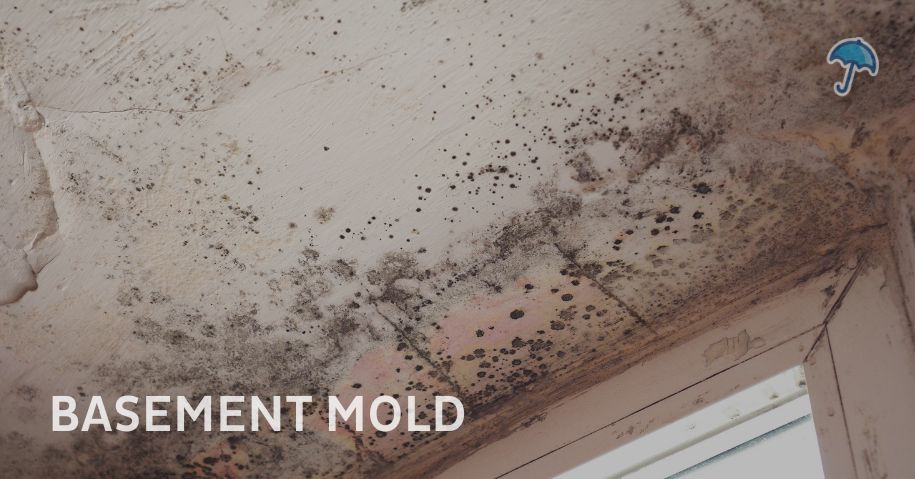
Does Basement Mold Smell?
Yes, basement mold smells. Most people describe basement mold as having a musty or stale smell, like the stench of decaying wood or damp clothing. However, the scent can also be earthy, rotten, or acidic. You will want to check for basement mold if you notice a new or peculiar odor coming from your basement. As you look for mold in your New Jersey basement, there are a few common types to be aware of.
The Different Types of Basement Mold
While several different types of basement mold can grow in your New Jersey basement, black, white, and green mold are the most common.
- Black mold. Otherwise known as Stachybotrys chartarum, black mold can also appear greenish at times. You need to remove black mold immediately (call a mold remediation company) because it releases toxic spores as it grows.
- White mold. This mold is commonly found on food but can also grow on damp or water-soaked materials. While it is not as toxic as black mold, white mold can cause allergies or respiratory issues.
- Green mold. The name green mold can be misleading, as it can sometimes be green, blue, or even yellow. It is occasionally toxic but almost always leads to allergy symptoms.

You may also run into particular problematic molds by their scientific name.
- Chaetomium globosum. Chaetomium globosum grows on damp cellulosic materials found in your basement. This mold can harm your health, causing allergic and toxic reactions.
- Penicillium. Penicillium is a common fungi found in diverse habitats, including in your basement. Penicillium can threaten individuals with weak or compromised immune systems leading to allergic reactions and infections. Some types of Penicillium can release carcinogenic mycotoxins or even cause measurable organ damage.
- Aspergillus. Aspergillus is another common mold. Most people will breathe in aspergillus spores every day, but for those with weakened immune systems, inhaling aspergillus can cause lung infections that can spread to other parts of the body.
- Basidiomycete. Basidiomycete is a group of fungi that release basidiospores which can have a range of ill-health effects that range from pneumonia-like symptoms to cryptococcus meningitis if the infection isn't treated quickly.
Before you see full-fledged black, white, or green mold in your basement, you will first see early warning indicators, which, if you notice them in time, can allow you to install preventative measures to avoid serious mold problems.
What are the Signs of Basement Mold Problems?
Identifying a mold issue in your New Jersey basement early can help you nip the problem in the bud before it can become severe. Keep an eye and nose out for spots, smells, respiratory issues, and muggy air.
- Spots. The first and most obvious thing to look for is mold spots in your basement. Discolored (yellow or pink) spots on the walls, floor, and furniture indicate the beginnings of basement mold.
- Smell. As we mentioned, mold has a musty, rotten, peculiar odor. If you notice that smell scan your basement for mold.
- Respiratory issues. When inhaled, the spores released from mold can irritate and even cause respiratory problems. If you are experiencing increased or abnormal respiratory problems (low threshold headaches, stuffy noses, sore throats, coughing, or asthma), mold may be the culprit.
- Muggy air. High humidity is a major cause of basement mold. If your New Jersey basement starts to feel muggy, damp, or like there isn't any air circulation, be on the lookout for developing mold spots.
Now, you know about the typical kinds of mold and the indicators of mold problems to watch out for, but why all the fuss? Does New Jersey basement mold actually cause harm?
Is Basement Mold Dangerous?
Yes, basement mold is dangerous. It poses risks not only to your health and safety but also to the stability and structure of your home.
Health Issues Mold Creates
Mold grows and reproduces by releasing spores into the air. These spores are the problem. They travel in the air throughout your home, eventually being inhaled by you and your family. Once inhaled, the spores can cause many health problems, including allergies, asthma, and infections.
- Allergies. Mold spores can irritate and cause allergies, leading to a runny nose, stuffy throat, and itchy eyes. You may have basement mold if you suffer from these symptoms while inside your home.
- Asthma. Mold spores can also irritate asthma leading to difficulty breathing and intense coughing.
- Respiratory infections. Certain molds, like black mold (stachybotrys chartarum), release mycotoxins in their spores, which are toxic to humans. Mycotoxins can result in harmful respiratory and lung infections.
Property Damage Due to Mold
Along with serious health issues, basement mold can cause property damage. For example, mold can grow on and ruin couches, chairs, tables, and other furniture. More significantly, mold can grow on and behind basement floors, walls, and ceilings, requiring them to be torn out and replaced. Mold can even grow between paint and the wall.
Even more seriously, mold can cause severe structural damage to your New Jersey home as it feeds on and breaks down organic matter, including wooden beams and joists.
Basement mold is clearly dangerous, and you don't want it in your home. So how do you prevent it? The key to prevention is understanding what causes basement mold.

Why Is There Mold in The Basement?
A good question to ask is why there is mold in your basement in the first place. Let's explore the causes of basement mold in New Jersey.
What Causes Basement Mold?
All it takes for mold to grow is water, oxygen, and feeding material (any organic matter). Obviously, there is oxygen in your basement. There is also likely organic matter - paper, cardboard, ceiling tiles, hardwood floors, etc.
The last ingredient is basement moisture caused by leaking plumbing, leaking wall cracks, and high basement humidity. With oxygen, organic matter, and moisture, you have the perfect combination for basement mold growth.
You are not going to suck out all the oxygen from your basement, and you probably won't remove all organic matter and sit on plastic chairs in an empty basement. So with oxygen and organic matter off the table, you are left with basement moisture as the contributing factor you must eliminate.
Why Do I Have Basement Moisture?
Why is there moisture in your New Jersey basement? Basement moisture and water come primarily from three different sources: water from inside your home, water from outside your home, and water as a result of humidity.
- Water from Inside the Home. Damaged plumbing is where water comes from inside your home. Broken or leaking pipes above or in the basement will lead to water entering your home, and gravity will drive that water down into your basement.
- Water from Outside the Home. Water from outside your home is more challenging. A high water table, inadequate gutters and drainage, and improper yard grading lead to water-soaked soil surrounding your home's foundation. Given enough time and pressure from water buildup, the water will inevitably seep through your basement walls and floors. The entering water will first be barely noticeable but can eventually grow to full-fledged basement flooding over time.
- Moisture from Humidity. The last source of basement moisture is high humidity. Humidity is the amount of water vapor present in the air. Water from inside or outside your home that evaporates can build up in your basement, increasing the humidity level. Additionally, warm, moist air from the outside can enter your basement through vents and open windows.

How to Prevent Mold From Growing in Your Basement
Basement mold is dangerous, and basement moisture is the primary culprit to eliminate. To prevent basement moisture buildup in your New Jersey home, your best bet is a professional basement waterproofing system installed by Blue Umbrella. We specialize in basement waterproofing, utilizing both interior and exterior solutions.
Interior Basement Waterproofing
Interior basement waterproofing, by a trusted New Jersey basement waterproofer, is a reliable solution to keep your basement dry and prevent mold growth. The steps of interior basement waterproofing include:
- A trench is opened along the perimeter of your basement floor at the base of the basement walls. Crushed ¾ inch stone is laid along the bottom of the trench.
- Weep holes are drilled into the lowest course of block of the basement walls to alleviate hydrostatic pressure in the walls.
- A French drain also called an interior waterproofing system is installed in the trench atop the crushed rock.
- The drain and trench are sealed, covered in another layer of ¾ inch stone, and then high strength concrete. The covered french drain is flush with the basement floor.
- A sump pump is installed beneath the basement floor in a sump basin. The weep holes, basin and French drain collect and redirect the water to the sump pump, and the sump pump removes it from the basement.
- Finally, the water is transported out via an exterior discharge line, expelled to the road, or out to a bubbler pot at least 15 feet from your yard.
- The completed system keeps water from entering your basement living space.
Exterior Basement Waterproofing
Additionally, you can find a New Jersey basement waterproofing company that offers exterior waterproofing. Exterior basement waterproofing protects the outside of your basement walls, preventing water from entering. First, Blue Umbrella applies a sealant over the entire outside surface of your basement walls, followed by a blue umbrella skin membrane to create an impenetrable barrier. Next, we cover the barrier with a layer of drainage board, and soil is backfilled against the foundation.
We generally recommend exterior basement waterproofing only for new construction to avoid having to excavate all of the soil surrounding your existing home, which can be invasive and expensive.
Regardless, the end product of exterior basement waterproofing is a protected basement free of basement water.
The Importance of a Basement Dehumidifier
The interior french drain and the exterior sealant prevent basement water, but your New Jersey basement can stills suffer from high humidity allowing for mold growth.
For both interior and exterior basement waterproofing, the system is only complete with a basement dehumidifier. Blue Umbrella installs high-grade basement dehumidifiers, which maintain a low enough humidity in your basement, preventing moisture buildup and mold growth.

Other Ways to Prevent Basement Mold
Blue Umbrella's basement waterproofing services in New Jersey are the trusted, reliable solution to prevent basement mold. Still, as a New Jersey homeowner, you can also do a few things on your own to avoid basement mold.
- Keep plants upstairs. Plants look nice but shouldn't be kept in the basement. Plants are a food source for mold, especially plants in a basement with limited ventilation and where the plant's soil may not have a chance to dry. Also, accidental overwatering can leave excess moisture in the basement. The best bet for you and your plants is to keep them upstairs.
- Avoid paper-based storage. Cardboard boxes are made of organic material (mold food) and are more susceptible to mold growth than plastic containers. Stick with plastic in the basement.
- Properly Vent Appliances. Appliances like the washer and dryer are commonly kept in the basement. If that is the case in your home, ensure the machines are adequately vented so that any steam produced can escape the basement. If the steam is not vented, it will come in contact with your cool basement floor, ceiling, and walls and condense into problematic moisture.
- No Wood Storage in the Basement. Like other organic materials, firewood provides the perfect food source for mold. If any moisture exists in the basement, your firewood stash is an ideal breeding ground for mold. Instead of the basement, store your wood outside in an open environment away from your foundation.
Blue Umbrella Can Help Keep Mold Out of Your Basement
By now, you should be quite the basement mold expert. You know what mold is, the dangers it threatens, what causes mold, and most importantly, how to prevent it - basement waterproofing.
Blue Umbrella is New Jersey's trusted waterproofing contractor, with years of experience and hundreds of satisfied customers. We can help keep your New Jersey basement safe.
Call us today for a free inspection and basement waterproofing quote. Let us help you put your mold problems and stress behind you.
Solve Basement Mold Problems
Our New Jersey basement waterproofing experts can prevent basement mold from growing in your basement.
Get My FREE Estimate
Schedule a free inspection today!
TESTIMONIALS
OUR PAST PROJECTS
Subscribe to our newsletter for the latest tips, tools & news!
Blue Umbrella Waterproofing Proudly Serves These Areas
For more information about basement waterproofing services or to find out if Blue Umbrella serves your area, see our complete service area.



